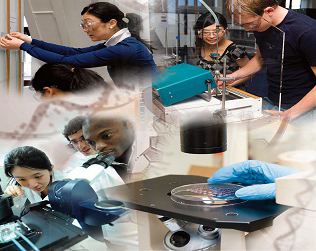This Engineering Personal Statement was part of this student’s successful application to the University of Cambridge, University College London, University of Bath and University of Manchester for Chemical Engineering.
Wastewater with high COD and BOD are the main factors in water pollution in industrial areas. My concerns about water pollution were accelerated when I saw how waste was directly drained into rivers, without any treatment, during my internship as a QA Chemist. Besides the use of instruments such as a FTIR and a Dynamic Rheometer to examine the performance of products based on AATCC and ISO standards, I designed a water treatment system using activated carbon as a catalyst, leading the pigments and organic contaminants to chemically bind to its active sites,which successfully reduced the COD of the industrial wastewater by 170mg/L. I have always been fascinated by how pollution affects our environment. When I was offered an unbonded scholarship by the Central Bank I was certain I wanted to study Chemical Engineering so that I could, one day, contribute to R & D in this field.
In my research into how to reduce water pollution in Malaysia, I investigated water treatment systems in the palm oil industry. The article ‘Review of Palm Oil Mill Effluent (POME) treatment’ by Y.L. Ling was surprising as I found out that 85% of POME, the major pollutant, is treated using an anaerobic lagoon system that takes months to break down into methane which then contributes to global warming. Intrigued, I decided to search for alternative methods; ‘Energy for a Sustainable World’ by Armaroli et al impressed upon me the advantages of a hydrogen economy; if POME could be broken into hydrogen directly, the effect of global warming would be reduced. I applied my knowledge of science to modify the current lagoon system into three reactors; the first reactor for the hydrolysis process; the second reactor, a Continuous Stirred Tank Type Bioreactor for acidogenenesis and acetogenesis; the third reactor, an Up-Flow Anaerobic Sludge Blanket for the methanogenesis process. The hydrogen, together with the methane from the methanogenesis, could generate electricity via combustion. However, carbon dioxide is produced from methane’s combustion. Therefore, I started to investigate carbon capture and sequestration technology. I was excited to find out that carbon dioxide can be absorbed electrochemically by amine or by the coelectrolysis of water and carbon dioxide into Syngas. Discussing this idea with Dr Muriciano, from the Chemical Engineering Department of the University of Bath, she confirmed that these experiments can be done but would be expensive.
I took part in several national competitions, achieving a high distinction in the National Chemistry and ICAS competitions, improving my analytical skills, application of scientific knowledge, and critical thinking. I love reading about science and recently read ‘Why things break’ by M. Eberhart. I was fascinated by the theories of material science and aspire to be a researcher.
I am involved in many clubs. As President of the Consumers’ Club, I strengthened my management skills and successfully organised a Green campaign, making and selling recycled bags. The club won the Best Club Award from the Ministry of Education, Malaysia. Working in a team, I initiated a new Maths Club and I enjoyed guiding juniors to solve maths problems. Being President of the Science Innovation Society, I have had fun presenting my ideas on how to construct products like cooling pads and solar cookers. My leadership skills have further developed through my role as a Prefect which has taught me to cope with challenging situations and to make the right decisions. As a member of Tzu Chi, a charitable group, I have helped raise RM5000 for poor farmers in rural areas of Myanmar. It was very heart-warming to receive appreciation letters from them.
Demand is inevitable but waste is optional. I believe POME or other wastes can be re-
treated to be a source of energy to replace the demand for oil and gas in the future. To help me achieve this goal, I am focused on pursuing a Chemical Engineering degree at a prestigious UK university.
DISCLAIMER: The personal statements on this site are strictly meant as a starting point to give an idea of how successful personal statements look like. There is no surefire formula to writing good personal statements. COLLEGELAH IS STRICTLY AGAINST PLAGIARISM OF ANY KIND. UCAS employs a plagiarism check system that checks applicants’ work against other published writing so please DO NOT PLAGIARISE.


Awesome PS! May i contact the author as I am interested in knowing how he or she interned at the firm mentioned above. Thanks.
LikeLike
Dear jshengw, thanks for visiting CollegeLAH. The author prefers to remain anonymous, would you mind if we share your email address with him so that he may contact you personally? Thanks!
LikeLike
It’s tyrotoxism96@gmail.com. Thank you.
LikeLike
Jshengw, please check your email as the contributor has just sent you some info regarding the internship!
LikeLike